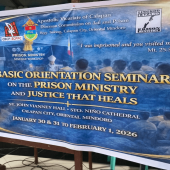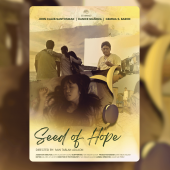Jesuit Prison Service director seeks total rehabilitation of PDL in Philippines
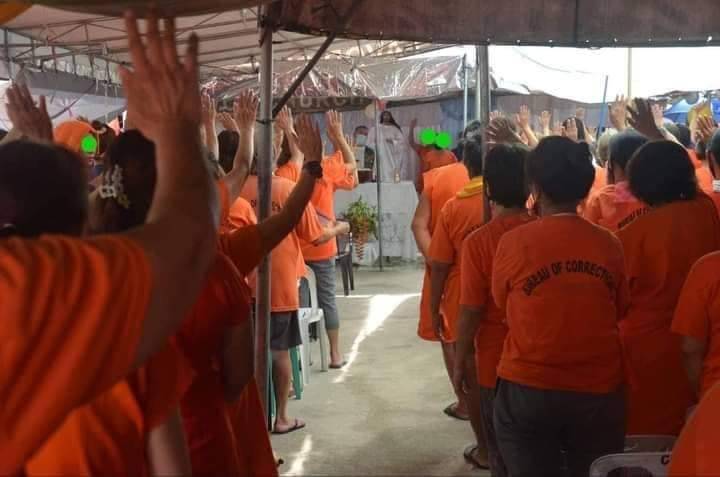
A prisoner leaped for joy when he got the news that his daughter had graduated with a degree in accountancy.
The daughter was a recipient of the Philippine Jesuit Prison Service (PJPS) Foundation, Inc. scholarship program from Grade 2 up to college.
Since 1996, under PJPS, priests and volunteers work for the holistic development of the persons deprived of liberty (PDL).
Socio-pastoral program
This program aspires to fully rehabilitate inmates during jail time.
"One of the key principles of the foundation is ‘Cura personalis,’ or care for the entire person," said Ma. Katherine L. Guaño, PJPSF associate director.
Under this program, the foundation works with other groups to provide PDLs with free access to legal, medical, counselling, and feeding services.
"Since Mass and confessions are regular, it allows us to get in touch with them and know what they need," she said.
The minimum, medium, and maximum security prisons have their chapels. Each prison has quadrants. And every quadrant is served by several chapels.
The foundation currently serves 33,000 PDLs in the New Bilibid Prison in Muntinlupa, Metro Manila and the Correctional Institution for Women.
It is looking at providing each inmate with one germicidal soap and pain and itch-relieving ointment during the prison awareness week on October 24–30.
"We will launch Oplan (operation) Oatmilk on October 29," she said. "We will start with 200 PDLs in the minimum security compound, mostly elderly. The elderly are our priority for now. And then we will be monitoring their health and nutrition."
The components of the socio-pastoral program include Mass, confession, and formation. But the foundation also provides the PDLs with access to other needs, like medical services and goods, legal aid, counselling, and personal hygiene essentials.
Under the foundation's Oplan Dalaw (Operation Plan Visit), family members of the incarcerated are brought to the prison compound for visitation.
"Some of them have not seen their family for many years," Guaño said. "What we do is look for funds to bring one or two family members."
Guaño, a graduate of AB Psychology from the University of the Philippines, stressed the need for the incarcerated to see and communicate with their family while in the penitentiary so that they are prepared to reunite with them once they reintegrate into society after serving jail time.
"We also conduct online sessions for children in conflict with the law and their families," Children in conflict with the law are young people under 18 years of age found to have broken the law.
"Those who are inside have life skills sessions for students. Inside, we have students taking classes," Guaño said. We have resident teachers for their formation."
The foundation also has a formation program for Bureau of Corrections personnel.
"We have to take care of those who are taking care of the PDLs," she added.
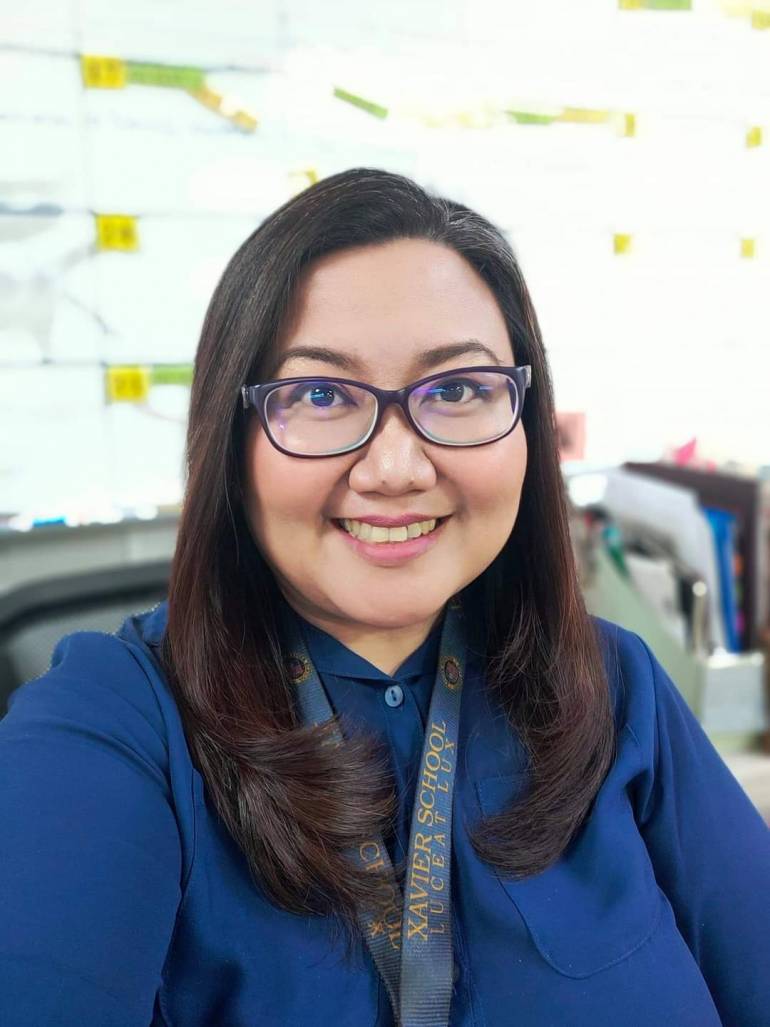
Scholarships for PDL family members
The scholarship had a few recipients when it started more than 20 years ago. But over the years, the number of recipients eventually grew.
"We started in 1994," Guaño said. "We had only about 12 scholars at that time. Right now, we have 100 scholars every year. But we are finding ways to increase that number since many are applying for our scholarship."
This year, the program has four graduates. One graduated in Accountancy, one in Communication, one in Architecture, and one in Secondary Education majoring in English.
The incarcerated should apply for the scholarship of their children, Guaño noted.
One of the recipients of the scholarship program is now an active volunteer with the foundation.
Reintegration program
The foundation prepares the incarcerated for their reintegration into free society through this program.
"It's an intermediary capacity-building program that seeks to provide immediate assistance, accompaniment, and necessary support when the person deprived of liberty is released," Guaño said.
Financial, livelihood, and employment assistance are provided to ex-PDLs.
While serving jail time, the PDLs undergo livelihood training, providing them with skills that they could use when they are back in a free society.
"Some of them need funds to start with in their livelihood," she said.
The foundation continues to keep in touch with ex-PDLs to track their progress in the community. They are invited to attend gatherings and recollections.
"Our goal is for them to have a smooth reintegration into the free society," Guaño said.
"The former PDL cannot do the reintegration into the free society alone," she said. "He needs others to do it."
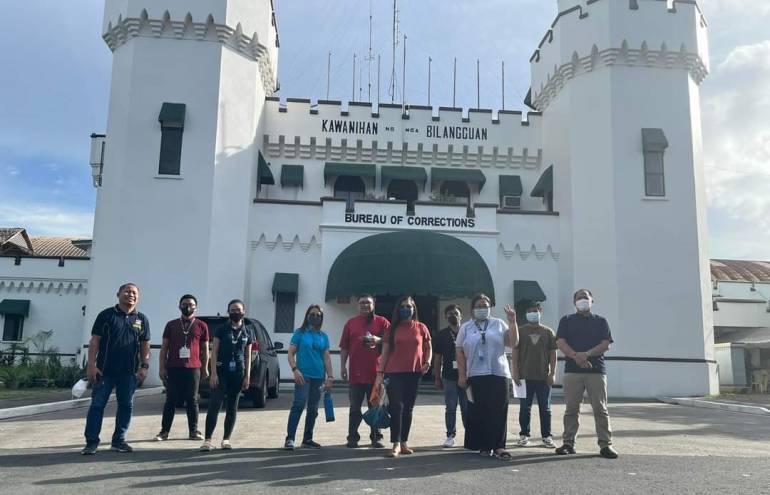
Prison Ministry Priorities
The foundation's programs prioritize the elderly, indigent, and visitor-less PDLs. Aside from what is provided to them, the inmates' resources come from their visitors. Visitors are a big help to them.
"The foundation envisions a society that builds lives, enkindles hope, and restores dignity to all those affected by incarceration," Guaño said. "Meaning, it's not just the PDLs but also their families and the free society."
"All these programs are there to help in the total rehabilitation of the PDLs and their families," she added.
The PDLs, especially those who do not have even a single one visiting them, find a family in the lay members of the foundation's team: MK Guaño, associate director; Henry Palmones, Jr., advocacy program director; Jel Ramos, scholarship program coordinator; Gene Alolosan, socio-pastoral program coordinator; Matthew Del Gado, communications officer; Nikka Natan, scholarship program associate; Rein Victoria, administrative assistant, and Jesuit Father Firmo N. Bargayo, Jr, foundation's executive director.
Guaño is a former campus ministry faculty member at Xavier School. She is also a former full-time pastoral worker-lay missionary at Couples for Christ.
"The programs help them find purpose," she said. "I believe that there is something more in store for them."
Radio Veritas Asia (RVA), a media platform of the Catholic Church, aims to share Christ. RVA started in 1969 as a continental Catholic radio station to serve Asian countries in their respective local language, thus earning the tag “the Voice of Asian Christianity.” Responding to the emerging context, RVA embraced media platforms to connect with the global Asian audience via its 21 language websites and various social media platforms.









